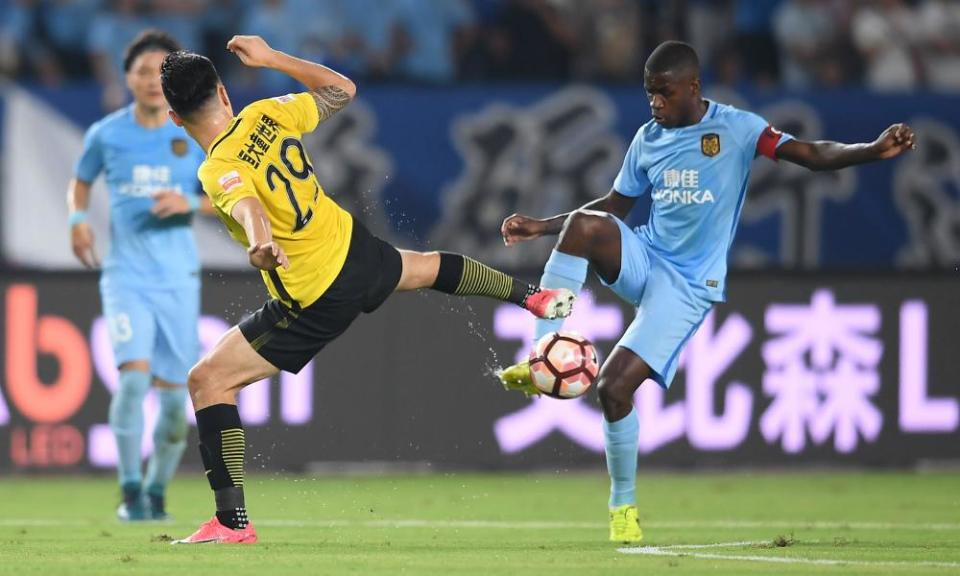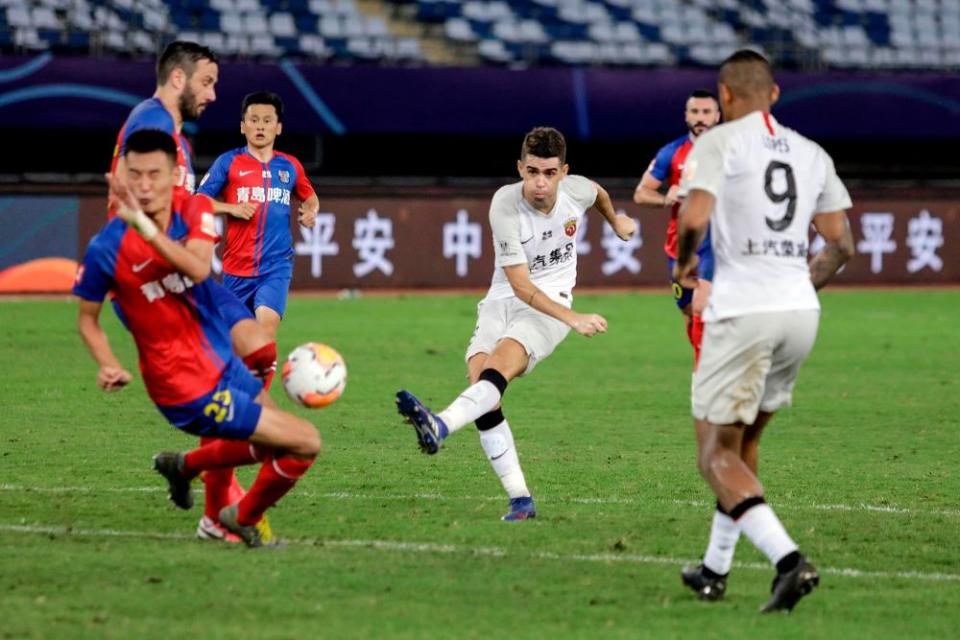China crisis: Jiangsu's demise is part of country's wider football struggle

If Liverpool are bad champions, one wonders what Roy Keane makes of China’s Jiangsu FC, who folded on Sunday three months after celebrating a first Chinese Super League title. The country’s leaders have bigger worries, however. Jiangsu are not the first top-tier team club to cease operations – Tianjin Tianhai went bankrupt last May and Tianjin Tigers supporters are worried their team could follow – but losing the champions highlights the precariousness of many clubs, with 16 lost across the top three divisions in the past year.
When Xi Jinping, the country’s president, made clear about a decade ago that it was time to end China’s football underachievement, conglomerates and other enterprises connected to the state moved quickly to get involved in the local game. We are finding out what happens to their football clubs when the businesses that own them start to struggle.
Related: Chinese Super League in disarray as champions Jiangsu cease operations
Suning, a retail giant whose department stores are a feature of Chinese cities, came relatively late to the party in 2015 but was soon catching up in the spending stakes. Ramires came from Chelsea, Alex Teixeira turned down Liverpool to do the same and, for a while, Fabio Capello was the manager.
Before their title win, Jiangsu last captured international headlines in 2019 when a deal for Gareth Bale fell through at the last minute. That was perhaps a lucky escape. Jiangsu, with an average attendance of over 27,000 in 2019, were losing money but Suning, which bought a majority stake in Internazionale in 2016 and also owns PPTV which, until recently, broadcast English Premier League games in China, had plenty – until Covid.
The absence of match-day revenue made club losses even bigger and the owners were also starting to feel the effects in retail. Last month, Suning’s largest shareholder, Zhang Jindong, announced the company would cut back on non-retail businesses but it could not find a buyer for Jiangsu, with debts of about £67m, despite an asking price of one cent. With no help coming from the city, it pulled the plug.

Tianjin Tigers, one of China’s oldest clubs, have been owned by Teda since 1998 but because of the Chinese football association’s new policy that removes mention of companies from club names, Tianjin Teda became Tianjin Tigers. According to local media, Teda removed its investment, leaving the new-born Tigers potentially stillborn. In February, Shandong Luneng were thrown out of the Asian Champions League thanks to salaries owed to past employees.
Making clubs less corporate is not just symbolic on the CFA’s part; it wants to remove the almost total reliance on cash injections from big business and force clubs to become more sustainable and professional. The Chinese market was cooling even before Covid. In 2017, a 100% “transfer tax” was levied on foreign signings amid government concerns about capital leaving the country and CFA worries on overspending.
A salary cap has been installed for the 2021 season, set to kick off in April. Foreign players can be paid a maximum of about £2.7m a year – roughly what the hapless Carlos Tevez picked up in a month in 2017 for what he called a “holiday” with Shanghai Shenhua. “The overspending is something off the track,” said the CFA’s general secretary, Louis Liu, in December. “Out of the $180m [the average amount spent in 2019], 70% to 80% goes into the pockets of the players. And of that, about 70% is the salaries of international players.”

There is still some money around. Clubs such as Shanghai Seaport have Oscar and Marko Arnautovic, whose contracts were agreed before the new salary cap. The club announced last weekend the signing of the Croatian defender Ante Majstorovic for about £3m, the most expensive purchase of the winter transfer window from Europe, a far cry from four years ago when the league spent about £330m, more than any other in the world.
In the short term will come a period of introspection. The quicker-than-expected bursting of the bubble, according to the state news agency Xinhua, could be a good thing. It is time after the wild growth, Xinhua said, to “respect the laws of football, respect the laws of the market, adhere to youth training and work for the long term”.
The large-scale investment in youth development that has spread around thousands of schools will continue and there is optimism that it will start to bear fruit by the end of the decade. Around the same time, China may well have bid for, and been awarded, a World Cup to host. Before then, naturalised Brazil-born players such as Ricardo Goulart and Elkeson should help with qualification for the expanded 2026 World Cup.
Long term, the future could still be bright, but that may depend on how Chinese football deals with the short-term issues of how clubs, many of which are in debt and rely on corporate money, can stand on their own two feet. Chinese football is not alone in facing that problem but there is still shock at how quickly the champions’ defence has ended.

 Yahoo Finance
Yahoo Finance 